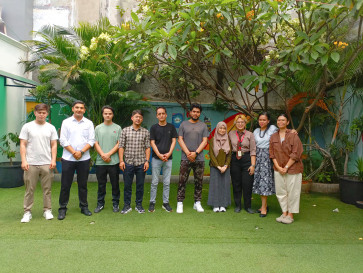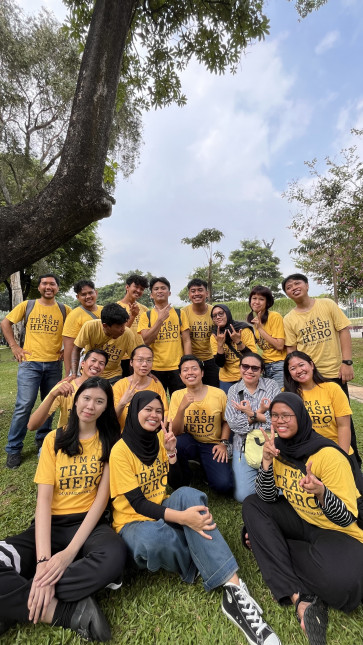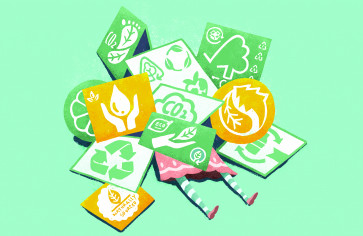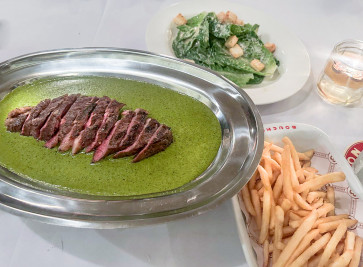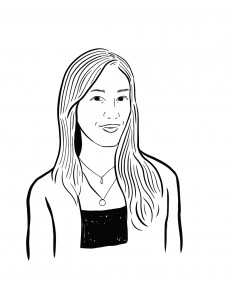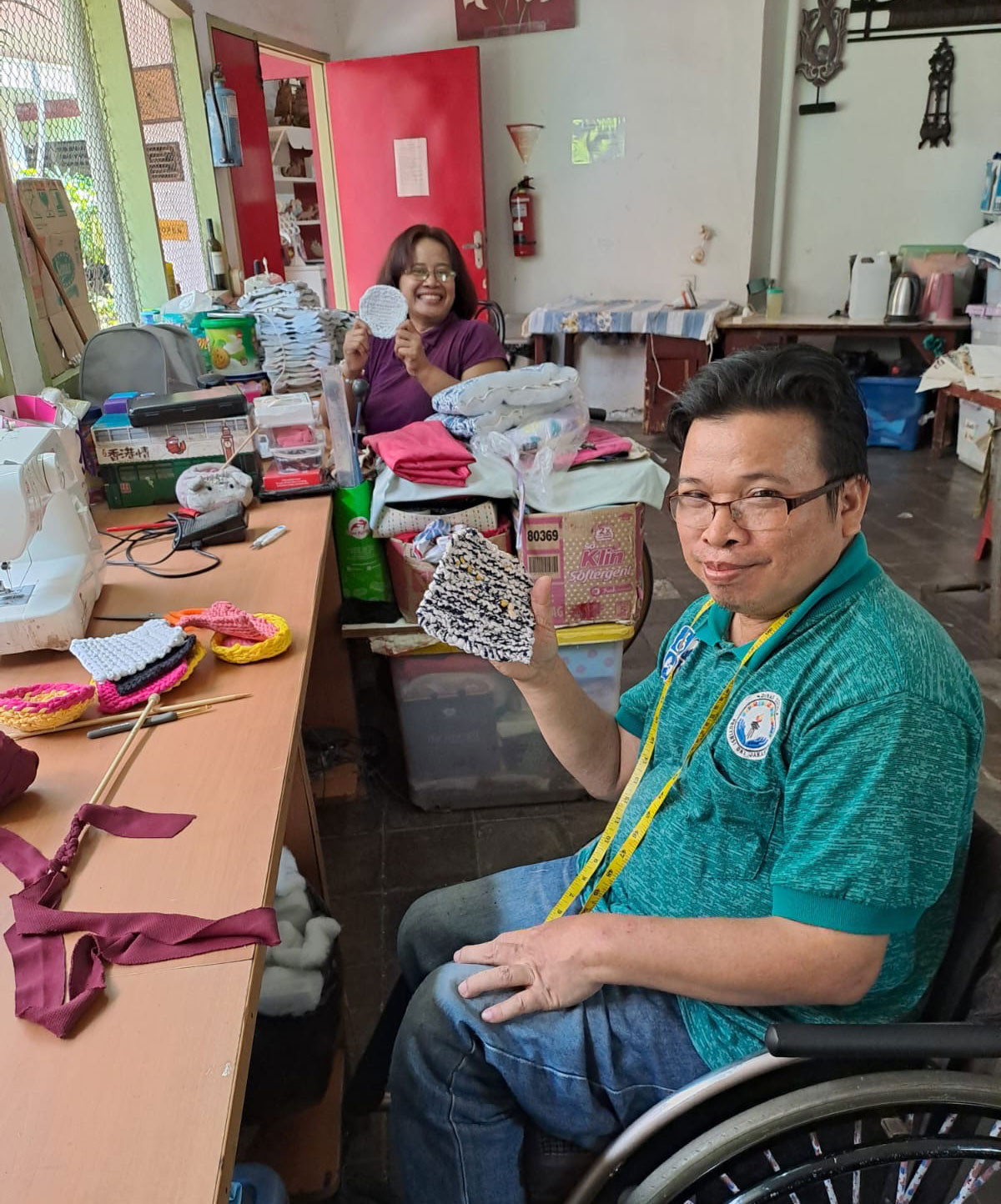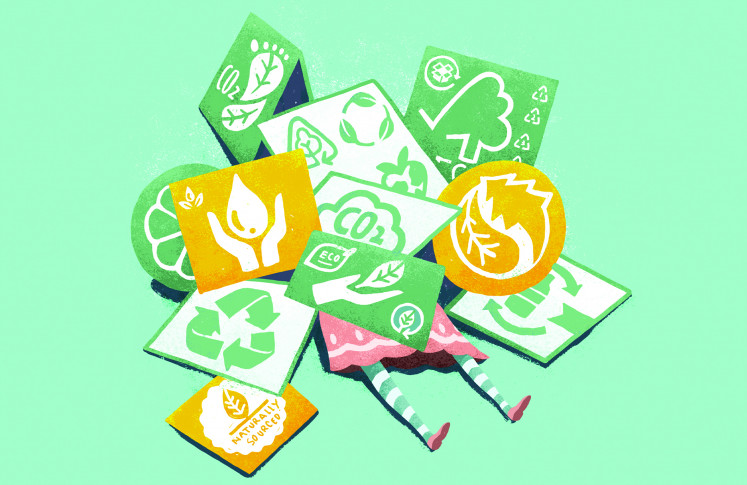(Courtesy of Laura Simbolon)
Speaking to a ballroom full of his peers at the Energy Building in Jakarta, Shakti Widjonarko, a senior high school student at the prestigious Jakarta Intercultural School, was poised and confident. Throughout his 10-minute presentation, he explained how his initiative, Desa Interlinked, could bring Indonesia into the future.
“Approximately 64 million Indonesians have zero connection to the internet. That's almost a fourth of all Indonesians,” Shakti told the crowd. “This means that they're behind in so many other factors and so many other sorts of industries as well, such as services, knowledge and business opportunities to develop themselves and their region at the same time.”
Through crowdfunding and a partnership with Pasifik Satelit Nusantara (PSN), Shakti has managed to connect nine villages in East Nusa Tenggara to the internet through satellite access. He would pitch his ideas to local business owners for investment, and PSN would take him to the finish line by setting up the system in rural areas.
In the villages, a resident is tasked with functioning as the operator, selling internet access tickets to other villagers. The revenue is then reinvested in order to maintain the circularity of the project.
Read also: Old sound, new nationShakti was just one of seven high school students at the Jakarta Scholars Symposium event in May, themed Innovating for Impact, that were presenting projects designed to make the world around them a little bit better than what they first saw. But beyond just addressing social ills, young Indonesians like them are taking it upon themselves to use their privilege to help the less fortunate.
Laura Simbolon, a student at Mentari Intercultural School Jakarta, talked about turning textile waste into sustainable yarn through Our Commuknitty, which she came up with after discovering the scale of the textile waste problem in Java.

Thank you!
For signing up to our newsletter.
Please check your email for your newsletter subscription.
“Through independent research and educating myself, I realized every single consumption that I make actually produces textile waste. And I guess upon that realization, I felt really guilty as a conscientious consumer,” she said.
Beyond just turning her consumer guilt into action, she decided to work with Yayasan Wisma Cheshire, a vocational training program for people with mobility issues, in order to turn textile waste into yarn and knitwear.
While Laura is working with the disabled and underrepresented, Ivey Warsono of British School Jakarta spends her free time in Bogor with her friends, sharing her knowledge and education with the city’s Refugee Learning Center through Model United Nations.
“At least from what I've witnessed myself and my classmates, a lot of people are genuinely very passionate about trying to improve the world in many ways, whether it's small or big. I think that in general, I try my best to make a change in the community,” Ivey said about her work.
Echoing the sentiment, Shakti said his idea to create a network for villages also came from witnessing his friends and like-minded classmates doing their own initiatives. While he was inspired that everyone was lifting up the underrepresented in Indonesian communities, he felt that the internet could be the essential tool to open more doors for marginalized communities.
Read also: Changing beauty trends: Healthy, natural and local Another young Indonesian, 24-year-old Marwah Zanirah, is helping provide other underprivileged youth with more digital tools by teaching them how to use a laptop and Microsoft Office through her Bridges of Hope Indonesia initiative.
An employee of the ASEAN Foundation, she spends her time away from the office to also look after refugees. Connecting with people from Afghanistan, Somalia and the Democratic Republic of the Congo, Marwah’s face seems to light up as they try their hands at Microsoft Excel or making a curriculum vitae using Microsoft Word.
Though they won’t be able to legally work in Indonesia given their status, Marwah noted that most are asking for more classes, always eager to learn new things. She, however, isn’t blind to the negative portrayal of refugees in the media, and emphasized the importance of negating that perception and the generalizations about the group.
“I think, maybe, I would just like to highlight how important it is to realize that when we have privilege, it's very important for us to contribute to society, because that's part of our responsibility,” she said.
Read also: Making space for aesthetics, functionality and personality
This article is part of The Weekender, a biweekly tabloid that appears in the Saturday edition of The Jakarta Post. Offering a variety of feature articles on lifestyle and culture, it aims to enriching your reading experience. Subscribe here to access The Jakarta Post's Saturday edition and all Premium content






